
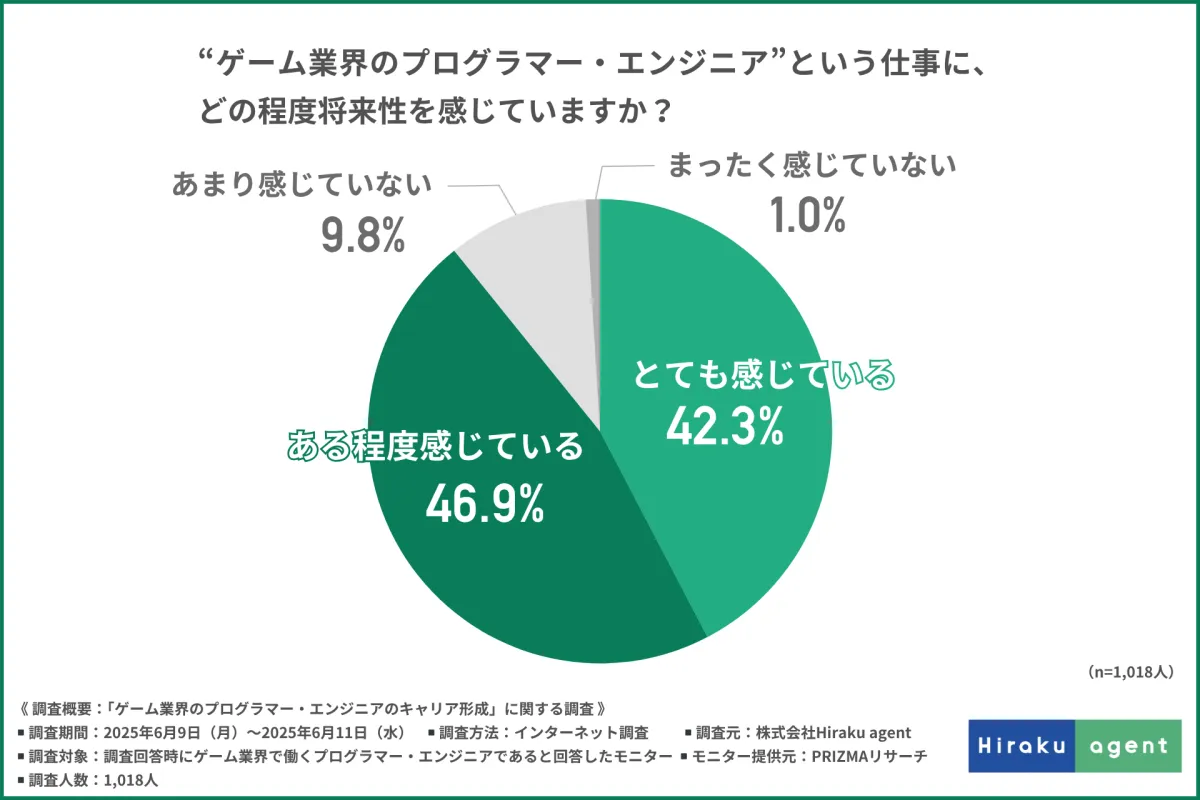
Exploring the Future of Game Industry Programmers and Engineers - Trends and Insights
Introduction
The game industry is a dynamic field that demands high technical skills and creativity. A recent survey conducted by Hiraku agent, based in Shinagawa, Tokyo, explored the career perspectives of programmers and engineers working in this sector. This article delves into the findings of this survey, shedding light on the current state of the industry and its future possibilities.
Survey Overview
From June 9 to June 11, 2025, Hiraku agent surveyed 1,018 programmers and engineers working in the game industry to understand their perceptions about career development. The results indicate that more than 90% of respondents feel a positive outlook regarding their future in this field, despite challenges such as long working hours and tight deadlines.
Survey Results on Career Perception
When asked about their current job roles, the majority of respondents were involved in game client development (47.4%), followed by server engineering (45.2%) and tools development (34.6%). This highlights the focus on both client and server development, which are pivotal to game creation.
Approximately 90% expressed feeling a significant or moderate sense of future potential in their jobs. The reasons cited for this optimism included the increasing quality demands in game development and the ongoing growth in the industry. Participants from their 30s to 50s remarked on the industry’s potential to expand, affirming that user growth supports this trend.
Contrasting Opinions
However, not all feedback was positive. Some respondents indicated concerns over low pay relative to workload, the potential impact of AI on job security, and fears regarding the industry's decline. This duality in perception suggests that while many are optimistic about their roles, significant apprehensions remain that need addressing.
Mentorship and Role Models in the Industry
A notable 90% of those surveyed reported having mentors or role models within the industry, contributing positively to their career journeys. Over half indicated that these figures were from within their companies, providing insights and guidance crucial for navigating career paths.
This support system appears strong, with nearly all respondents acknowledging the importance of guidance in their professional development. Furthermore, 92.6% believed that changing jobs within the industry could be beneficial for career enhancement, reflecting a willingness to adapt and embrace new opportunities.
Addressing Workforce Challenges
Despite a largely positive view on career development, a predominant concern cited was the long working hours and strict project deadlines leading to workforce attrition. Most participants indicated that these stressors significantly influence their decision to consider leaving the industry. Specific worries about future career prospects and dissatisfaction with salary were also prevalent, underscoring the need for institutional change in work culture within the game sector.
Desired Evaluation Systems
When queried about ideal evaluation systems, most respondents expressed a need for clear assessment criteria aligned with career paths. They called for transparency in how achievements and contributions are recognized and rewarded, thus ensuring fair evaluation across diverse job functions.
Conclusion
The findings reveal a complex landscape for programmers and engineers in the game industry, characterized by optimism about the future, yet tempered by concerns over workload, remuneration, and job security. To retain talent and foster growth, industry stakeholders must address these challenges by refining work environments, enhancing evaluation frameworks, and promoting continuous learning opportunities.
Hiraku agent aims to support those wanting to thrive in this vibrant industry by providing tailored consultations and an extensive network within the gaming sector. Discover more about how to advance your career with Hiraku agent today.
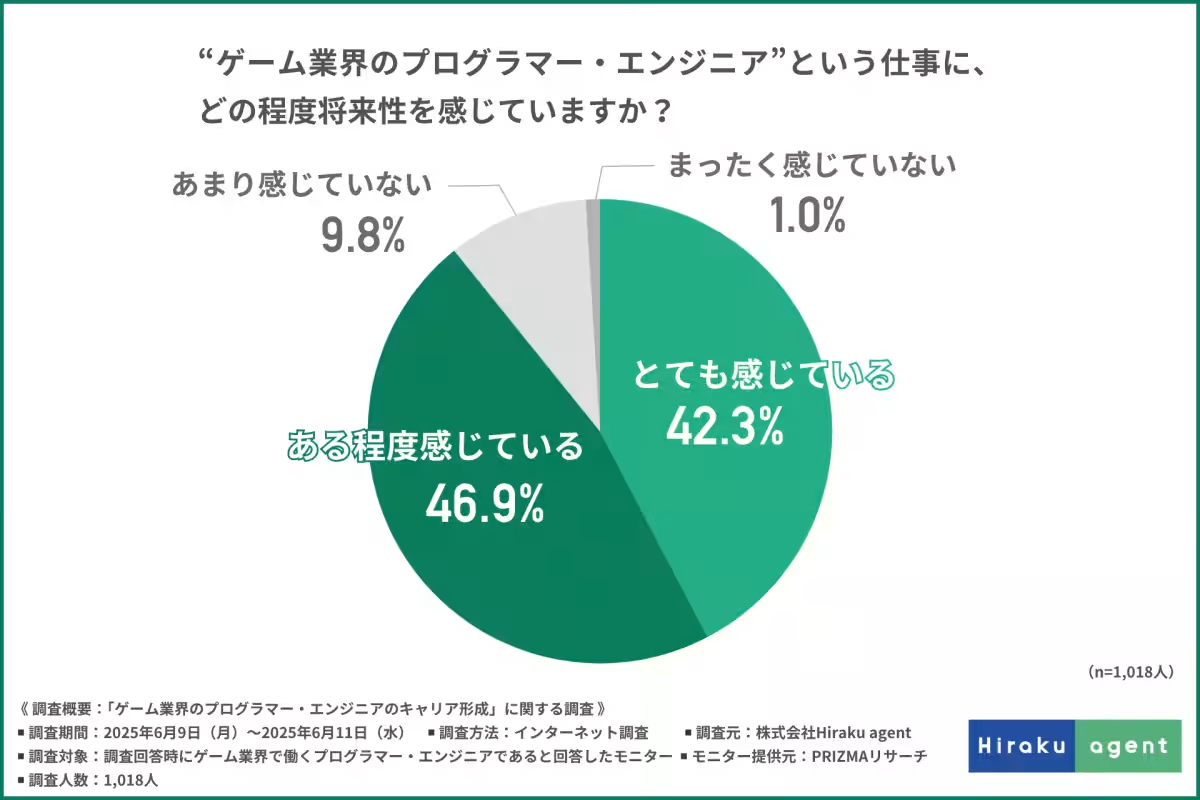
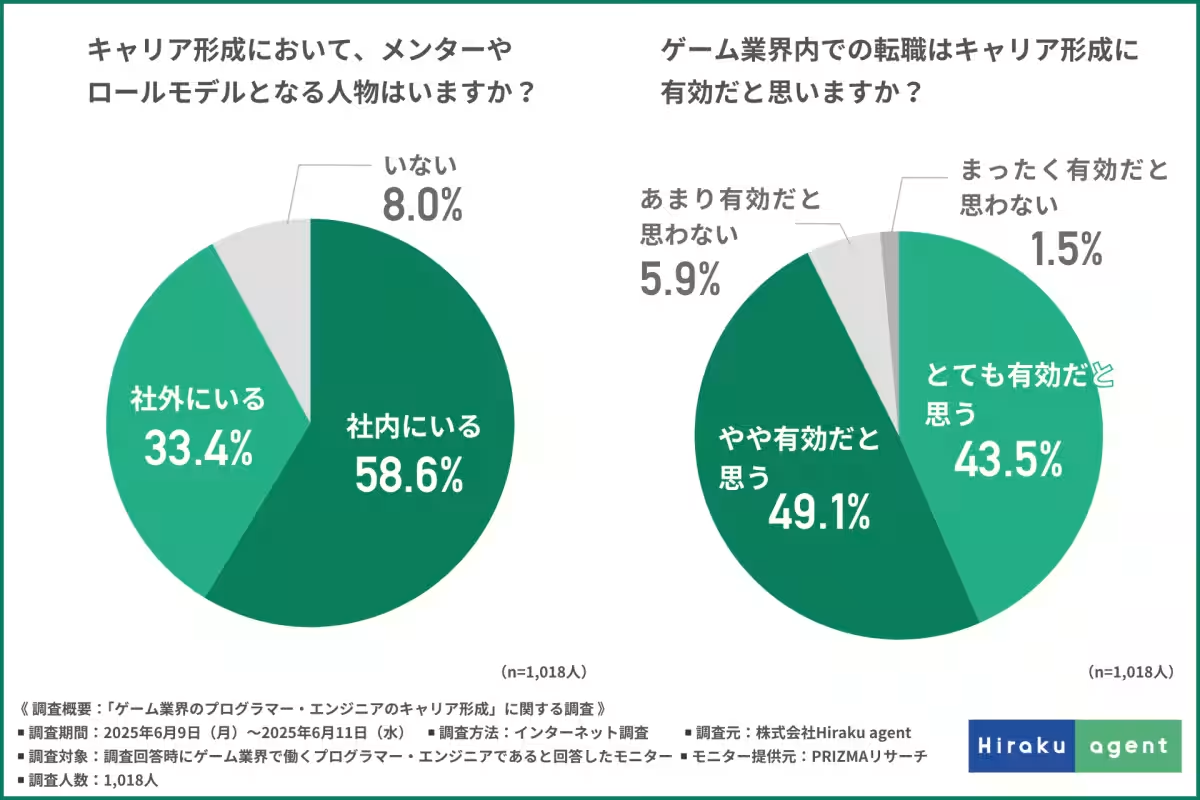
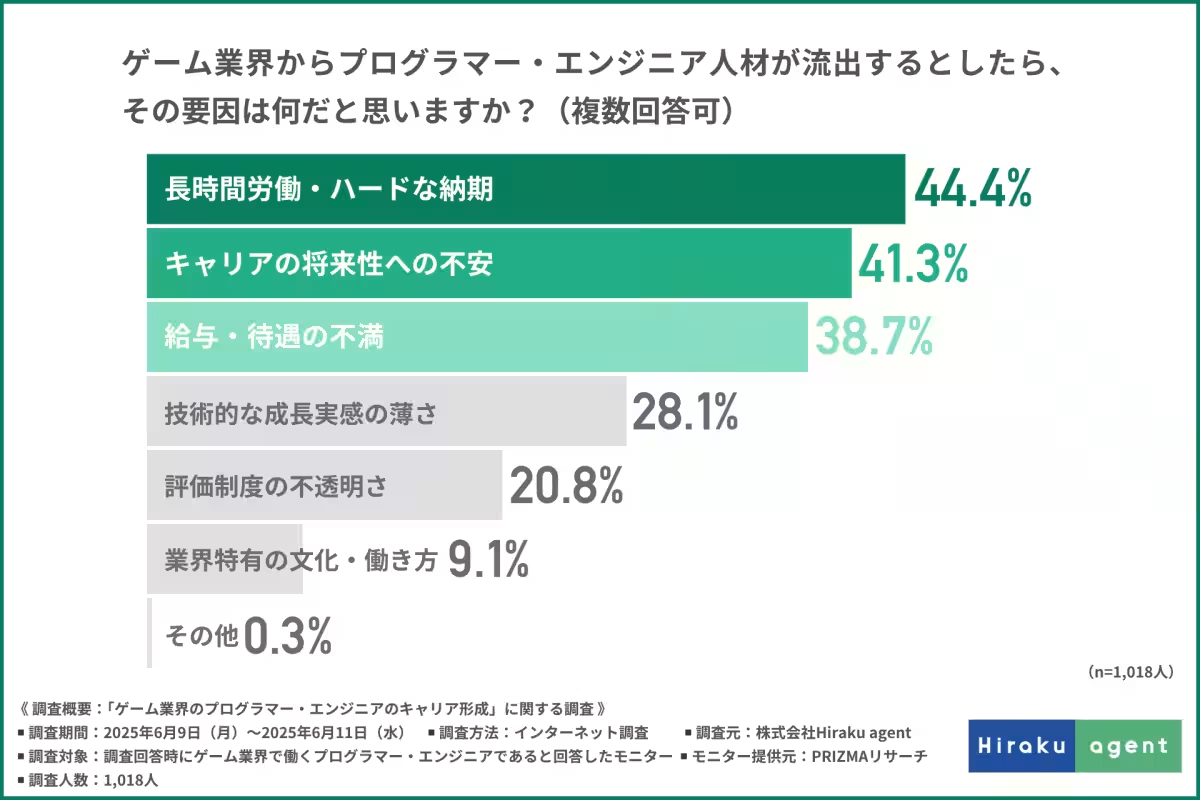
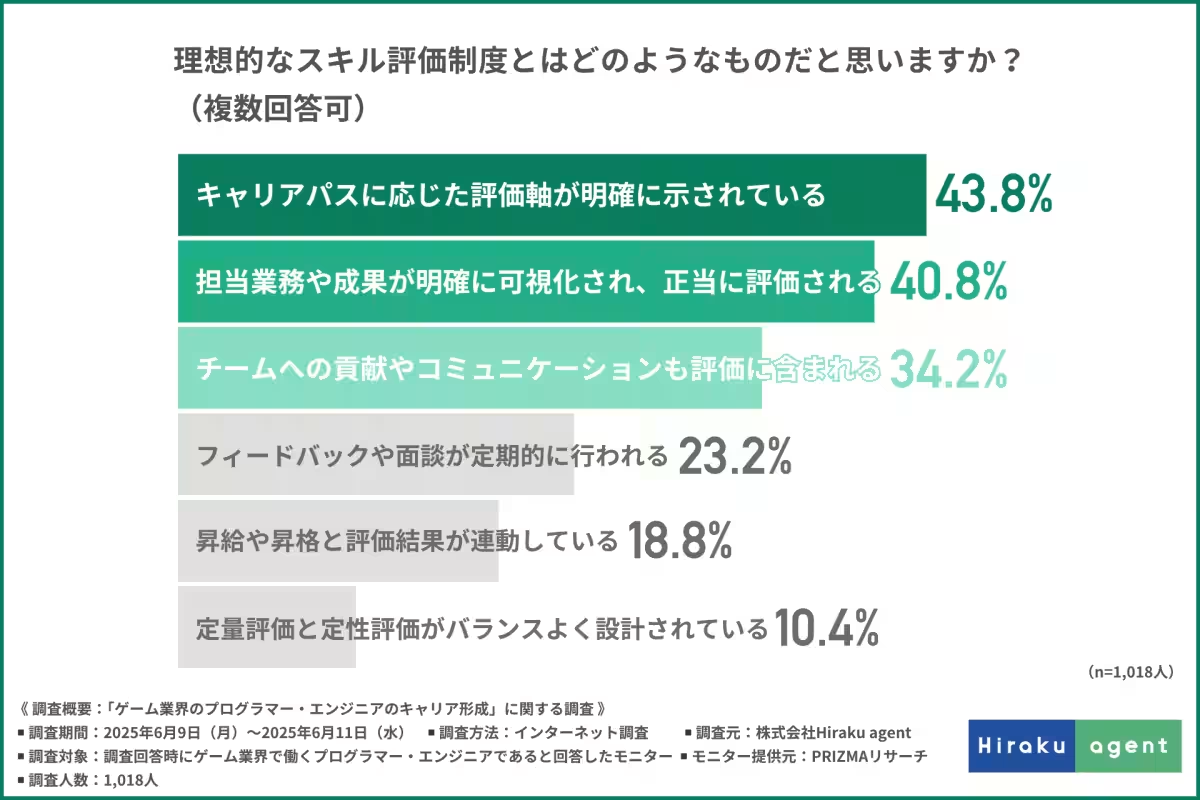

Topics Consumer Products & Retail)










【About Using Articles】
You can freely use the title and article content by linking to the page where the article is posted.
※ Images cannot be used.
【About Links】
Links are free to use.